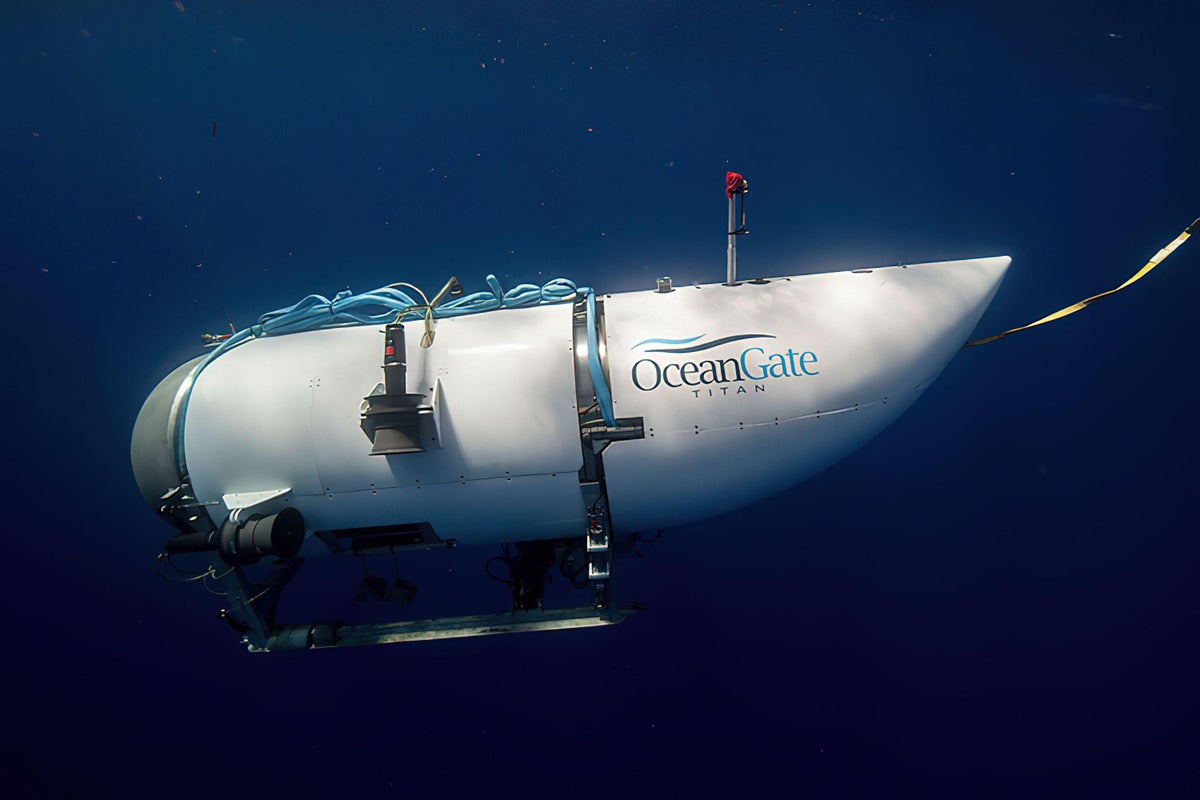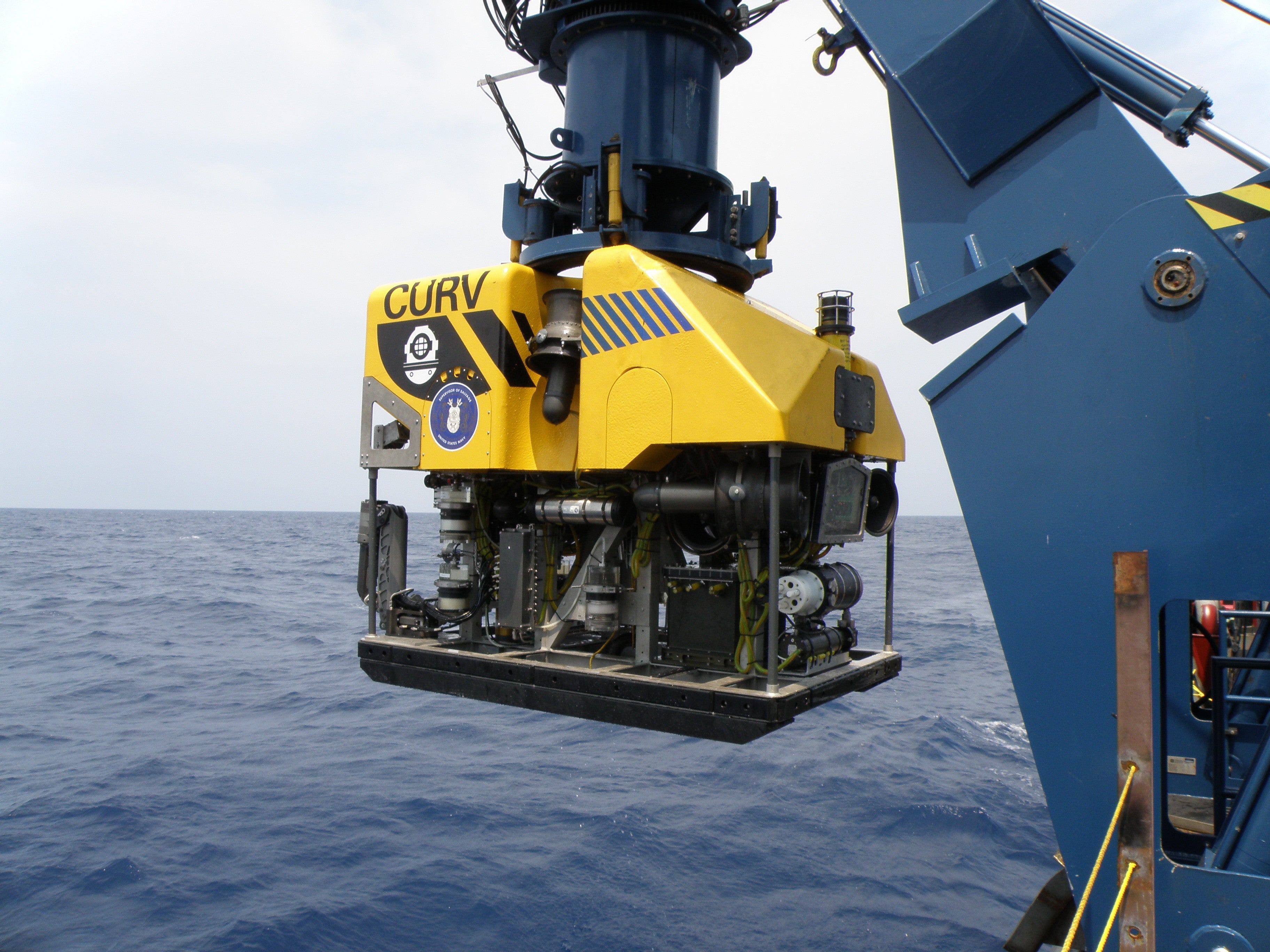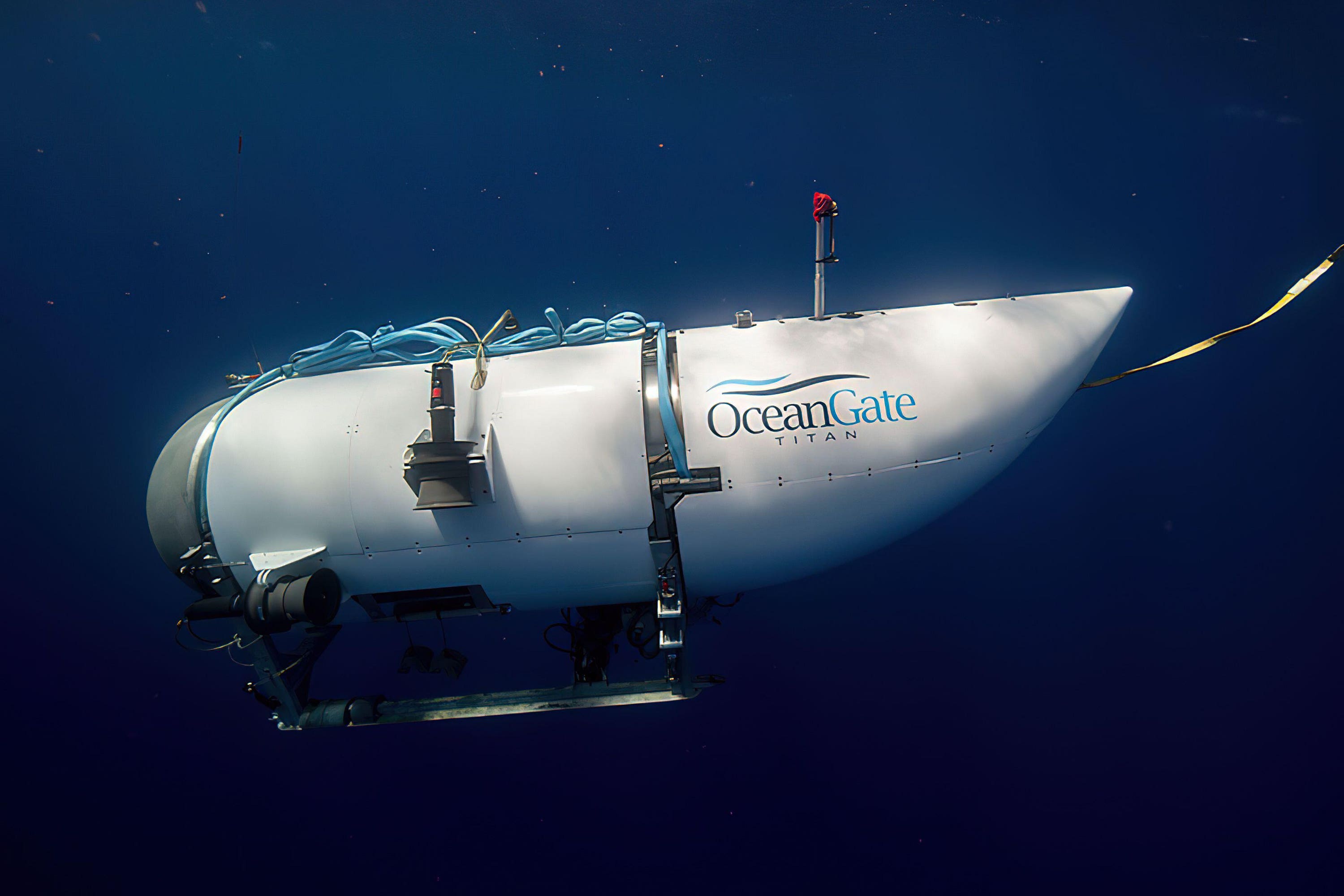
Rescuers are in a race against time to reach a deep-sea submarine that disappeared carrying a pilot and four crew on a tour to the Titanic wreckage.
The OceanGate Expeditions tourist and research vessel Titan lost communications with ship the Polar Prince one hour and 45 minutes into its 4,000m deep dive early on Sunday morning (18 June).
Rescuers say the vessel will run out of oxygen around midday on Thursday, and are searching an area of the North Atlantic Ocean about the size of Connecticut, 900 miles (1450kms) off the coast of Cape Cod.
British billionaire explorer Hamish Harding and French diver Paul-Henri Nargeolet — known as Mr Titanic — are onboard, along with Pakistani businessman Shahzada Dawood and his 19-year-old son Sulaiman Dawood are onboard.
Stockton Rush, the founder of OceanGate Expeditions, is believed to be the fifth person aboard.
Rescuers are yet to find any trace of the vessel or its crew members.
“It is a remote area and it is a challenge to conduct a search in that remote area but we are deploying all available assets to make sure we can locate the craft and rescue the people onboard,” US Coast Guard Rear Admiral John Mauger told reporters on Monday.
With the search now in its third day, experts say the chances of finding anyone alive is remote. Waning oxygen reserves and extreme cold are counting against the rescue mission.
No light reaches the depth of the Titanic, hampering a visual search of the wreck.
Sonar leading the blind search
The US and Canadian Coastguards have launched long-distance reconnaissance aircraft including two C-130 Hercules and a Boeing P-8 to conduct a radar and visual search.
Sonar buoys and a sonar ship have also been deployed to scan for any sign of the Titan.

Rear Admiral Mauger said the sonar devices have a listening depth of 13,000 feet (4,000m), the same depth as the Titanic wreckage.
The crushing pressure of the ocean at that extreme depth means that an unmanned vehicle such as a US Navy’s Curv-21 would realistically be the only vessel that could reach the missing submersible.
The Curv-21 can reach a depth of 20,000 feet and relays video, navigation and sonar data back to operators on the ocean surface via its fibre-optic “umbilical cord”, according to the US Navy.

In an interview with Good Morning America on Tuesday, Rear Admiral Mauger said the US Coast Guard had flown multiple aircraft over an area “about the size of Connecticut”.
A commercial vessel that operates unmanned vehicles joined the mission on Monday night, he added.
“Folks have been working around the clock to mobilise gear to get it to the site and to participate in the search for this submersible,” he said.
‘You’re dead before you realise’
The pilot and crew, known as “mission specialists”, would have received extensive training in the event of complications onboard.
They included Mr Nargeolet, 77, a former French Navy diver who has visited the wreckage more 35 times, more than anyone else alive.
In a 2019 interview with the Irish Examiner, the resident of New York state issued a chilling warning about the dangers of submerging to such extreme depths.

“If you are 11m or 11km down, if something bad happens, the result is the same,” he said.
“When you’re in very deep water, you’re dead before you realise that something is happening, so it’s just not a problem.”
Mr Rush, the CEO of OceanGate who is also believed to be onboard, is another experienced underwater explorer.

He has piloted the Titan to a depth of 4,000m alone, only the second person after filmmaker James Cameron to carry out a solo submersible dive deeper than 3,000m, according to a profile on the OceanGate website.
In a presentation at the GeekWire summit in 2022, Mr Rush said the Titan had visited the wreck site 13 times in 2021 and 2022 without incident.
Hamish Harding, an experienced explorer also onboard, would have been “calm and collected” in an emergency, his friend and fellow explorer Jannicke Mikkelsen told CNN.
“Hamish is larger than life. He lives exploration. He is an explorer to the core of his soul,” Ms Mikkelson said.
“He has been to the bottom of planet earth in the Mariana Trench…he’s even been in space. We circumnavigated the planet together,” she added.
Record-breaking rescue bid
At 4,000m (13,120ft), the potential depth of the Titan makes it one of the deepest ocean rescue missions in history.
In 2022, the Curv-21 was deployed to recover the wreckage of an F-35 fight jet that from the South China Sea at a depth of approximately 3780m (12,400 ft).
The Curv-21 attached a hoist to the wreckage to allow it to be pulled back to the ocean surface, according to the US Navy.
In 1973, two British sailors were rescued from a depth of 487m (1,600 ft) after becoming stranded in a six-foot steel ball.
The survivors had 12 minutes of oxygen remaining when they were finally pulled from the sea, according to the BBC.
Bleak outlook
Former British Navy Rear Admiral Chris Parry said the lack of contact with the Titan over the past 48 hours was “very concerning”.
Mr Parry said the submersible could have become caught up in the Titanic wreckage, or suffered a “catastrophic” mechanical failure onboard.
The 22-foot long Titan takes around two hours to reach the ocean bed, where the Titanic sank to in 1912 causing the deaths of 1,500 crew and passengers.

This means the vessel was likely close to the wreck site when it lost contact with support crews.
“Having listened to the timescale it’s very worrying,” Mr Parry told Sky News.
“There’s an optimistic option and that’s that it’s either lost an umbilical communication with the surface or indeed there’s been a malfunction and the submarine continues to operate but obviously out of contact with its mother ship,” he said.
“Obviously on the other end of the scale there could have been an accident. It could have become entangled in the wreckage of the Titanic. It could indeed have had a catastrophic failure.”
Finger-pointing at the US
An adviser to OceanGate Expeditions who pulled out of the tour at the last minute has claimed that US officials were slow to react after the Titan was reported missing on Sunday.
David Concannon told NewsNation on Monday that vital rescue equipment that could help locate the Titan is currently thousands of miles away in the Guernsey Channel Islands.
The equipment and crew was ready and waiting to be sent to the Atlantic Ocean to help locate the submersible, but had been held up due to US government bureaucracy, he said.
“They are mobilised. They’re sitting on the tarmac, ready to go. We have a ship off Newfoundland that is ready to take them to the site,” he told NewsNation.
“This equipment has been on the tarmac for hours. When I communicate with the US government, I get ‘out of office’ replies, not from everyone, but from key people that have a signoff on this,” he said.
“That’s unacceptable. I don’t want to discourage the government officials that are helping because they’re doing their jobs, but we need to do it quicker.”







